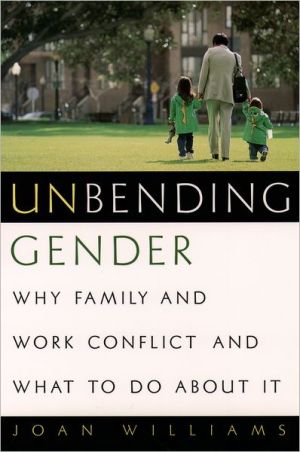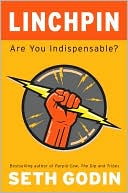Unbending Gender: Why Family and Work Conflict and What to Do about It
In Unbending Gender, Joan Williams shows that workplaces are designed around men's bodies and life patterns in ways that discriminate against women, and that the work/family system that results is terrible for men, worse for women, and worst of all for children. She proposes a set of practical policies and legal initiatives to reorganize the two realms of work in employment and households--so that men and women can lead healthier and more productive personal and work lives. Williams...
Search in google:
In Unbending Gender, Joan Williams shows that workplaces are designed around men's bodies and life patterns in ways that discriminate against women, and that the work/family system that results is terrible for men, worse for women, and worst of all for children. She proposes a set of practical policies and legal initiatives to reorganize the two realms of work in employment and households--so that men and women can lead healthier and more productive personal and work lives. Williams introduces a new 'reconstructive' feminism that places class, race, and gender conflicts among women at center stage. Her solution is an inclusive, family-friendly feminism that supports both mothers and fathers as caregivers and as workers.
Preface: What This Book Is AboutIXAcknowledgmentsXIIntroduction1Part IUnbending Gender in Social Life11Chapter 1Is Domesticity Dead?13Chapter 2From Full Commodification to Reconstructive Feminism40Chapter 3Deconstructing the Ideal-Worker Norm in Market Work64Chapter 4Deconstructing the Ideal-Worker Norm in Family Entitlements114Part IIUnbending Gender Talk (Including Feminism)143Chapter 5How Domesticity's Gender Wars Take on Elements of Class and Race Conflict145Chapter 6Do Women Share an Ethic of Care?: Domesticity's Descriptions of Men and Women177Chapter 7Do Women Need Special Treatment? Do Feminists Need Equality?205Chapter 8The New Paradigm Theorized: Domesticity in Drag243Four Themes of Conclusion271Notes277Index334








